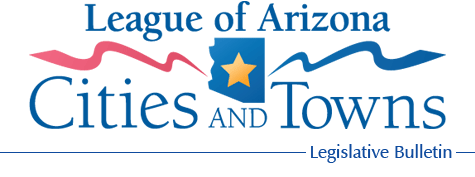
|
|
|
|
Regulatory Tax CreditOn Wednesday, February 15, the House Commerce Committee considered and passed HB 2815 (employment; incentives; regulatory tax credit) by a 5-3 vote. The bill, regarded as the House leadership's "jobs package," includes a number of provisions intended to stimulate the economy. One section of the bill, however, represents one of the most strident anti-government provisions to be considered by the Legislature this session. It introduces a brand new concept of a "regulatory tax credit," which can be claimed by any person or organization purportedly aggrieved by an "excessive regulation."Other provisions of the bill promote community college job training and provide for a phase-out of the state tax on capital gains. The capital gains provision carries a fiscal note estimating a loss to the state general fund of $62 million in FY 14 and a loss of $399 million by FY 20 when the tax cut is fully implemented. Fifteen percent of the loss would represent the reduction to Urban Revenue Sharing in any given year. Regardless, it is the tax credit section that raises the greatest concern for cities and towns. Because the definitions of "regulation" and "excessive regulation" are so broad, virtually any city or town regulation could be the subject of a claim. For example, any regulation that deals with aesthetics - such as sign ordinances, neighborhood code standards, or visual blight - could be subject to a claim of excessive regulation. So would standards that address barking dogs, noise, home businesses, and virtually any other regulation that either prohibits or requires certain actions. The amount of the tax credit against cities and towns is limited to $100,000 per year statewide, but there is no limit on the number of claims that could be filed. Also, the bill authorizes the State Treasurer to withhold the amount of a tax credit from the shared revenue payments due to the city. It includes a complicated process in which staff from the Department of Revenue would determine whether a regulation is "excessive," notwithstanding its enactment by an elected mayor and council. Furthermore, the provision provides for no judicial review of a departmental decision. The regulatory tax credit scheme, an untested and unworkable brainchild of the Goldwater Institute, reinforces an anti-government stereotype that all regulation is harmful, rather than protective of property values, the community and its quality of life. Despite the committee vote, several Representatives expressed concerns with the tax credit provision of the bill. Please watch for updates from the League on this measure. |
|
|
Legislative Bulletin is published by the League of Arizona Cities and Towns. Forward your comments or suggestions to league@azleague.org. |





